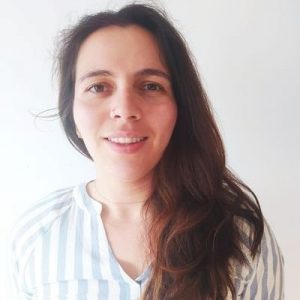Elysa Ioannou: Optimising Physical Activity Interventions after Gestational Diabetes

Elysa Ioannou is a PhD researcher in the Sport and Physical Activity Research Centre and a co-locator at the Advanced Wellbeing Research Centre alongside being a Graduate Teaching Assistant for level 4 to 6 students.
What is your PhD research focused on?
My PhD research is focused on physical activity after Gestational Diabetes, using a socio-ecological framework. The work is realist-inspired, going through iterative cycles of refinement through ‘rough’ ‘theory’ development, to better understand what could work to increase physical activity uptake and maintenance for women after Gestational Diabetes. The work is taking a ‘whole systems’ approach, evaluating different ‘levels’ where physical activity could be optimised, across the socio-ecological model.
Why is it an important area of study?
Gestational Diabetes increases the risk of subsequent Type 2 Diabetes 10-fold. The prevalence of gestational diabetes is also increasing both in the UK and globally. Physical activity is a lifestyle behaviour that can reduce and manage the future risk of type-2 diabetes after gestational diabetes. Optimisation of physical activity after Gestational Diabetes is under-studied. The work will piece together, using realist-inspired approaches and the socio-ecological model as an underpinning theoretical framework, to optimise the uptake of physical activity after gestational diabetes.
Tell us about your career/academic journey so far
Working in the Sport and Physical Activity Research Centre and being a co-locator at the Advanced Wellbeing Research Centre has opened up opportunities for me to work on other interesting research projects; for example, a co-production study with older people and a process evaluation based on medication management. I am also a Graduate Teaching Assistant and have had teaching responsibilities from level 4 to level 6, including delivering labs, and seminars, writing and delivering guest lectures and supervising dissertations students. I have also worked collaboratively with colleagues in Australia, looking at a global priority-setting exercise for women after Gestational Diabetes. Being awarded the Human Kinetics Student Free Communication Presentation Award at the BASES 2022 annual conference and being in the hall of fame has definitely been a highlight so far!
Other than these professional experiences, the journey of learning the pace of academia, the process of peer review and the challenges of recruiting have been really instrumental learning experiences that will aid my career going forward.
Why did you choose to study with the AWRC/SHU?
The main reason was for the opportunities to work collaboratively and develop myself as a well-rounded academic. I appreciate being able to take on additional responsibilities and build on experience to prepare me for a future career in academia.
What’s it like being a PhD colocator at the AWRC? What do you enjoy most?
Being a colocator at the AWRC has helped with networking and increased opportunities for gaining experience outside of the PhD. But the most enjoyable part is probably the informal chats that occur naturally over the day with a range of different researchers on different topics.
What do you hope to do after your PhD?
I would like to continue a career in academia. I really enjoy research, for example in public health, chronic disease prevention and or management, evaluations, or physical activity-related disciplines.
Many thanks for speaking to us, Elysa, we wish you the best of luck with your studies!
Follow Elysa on Twitter.
